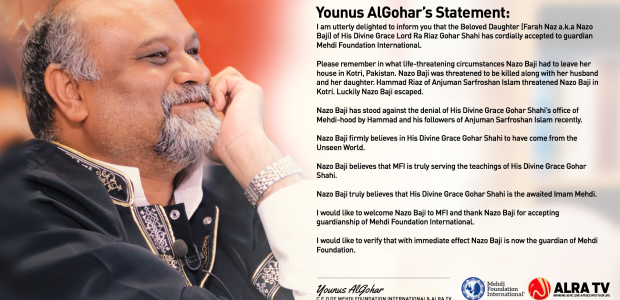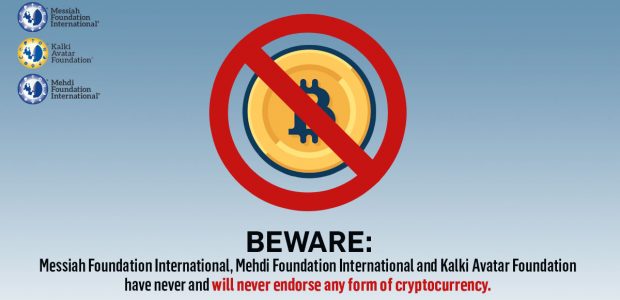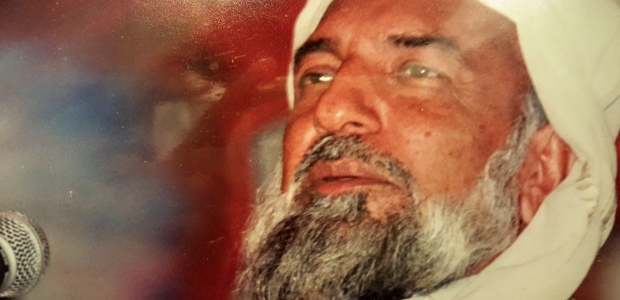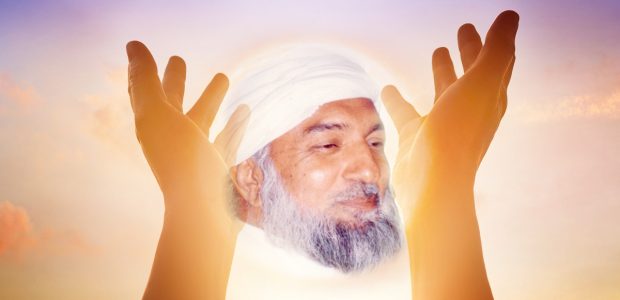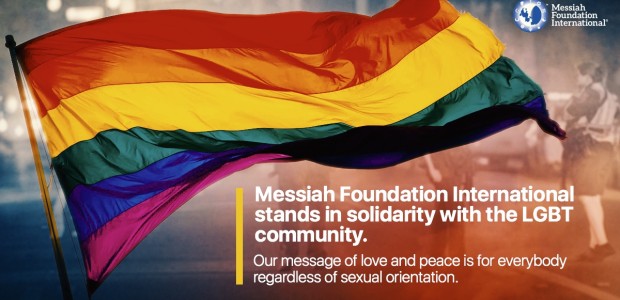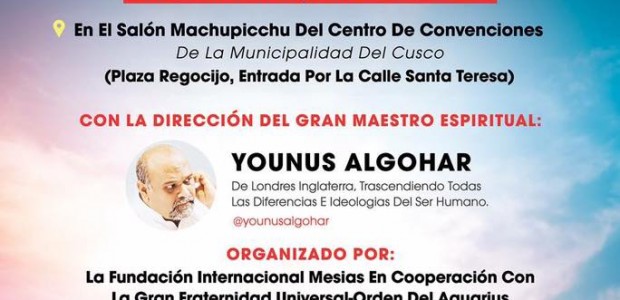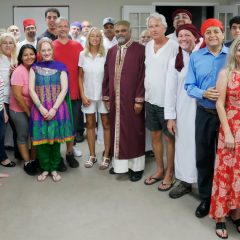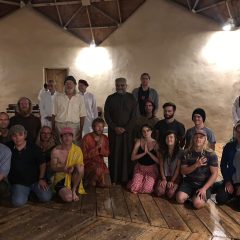I went to a Pakistani school in Karachi where even the teachers do not know English. One day, I saw His Divine Eminence Gohar Shahi in my dream; He was telling me, ‘You should learn English. The next day I went to see HDE Gohar Shahi and said, ‘This is what I saw in my dream.’
HDE replied, ‘Perhaps in the future, you will be involved in widespread of this mission. So I want you to learn the language.’ So I started self-study. Sometimes in dreams also, HDE would tell me how to speak.
I worked really hard. I used to go to the British Council Library and a library in the American Consulate in Karachi. I would sit there for 5-6 hours every day and read books.
Turmoil and hard work will never go into a waste.
The effects of that hard work started to come up to the surface. When I came to live in England 23 years ago, I had an opportunity to brush up my language skills. I went to a college and then I spent 3 years doing a Proficiency in English Diploma from Cambridge University.
One thing is very significant and prominent: when you speak, every word must be pronounced correctly. If you do not pronounce it correctly, people will not understand what you are saying. When I came to England, I would speak to people there and they wouldn’t understand me. I used to think to myself, ‘I thought I learned English.’ I used to go back home and check in the dictionary whether the word that I said to them really existed; the word was right but they wouldn’t understand it because I was not pronouncing it correctly.
Never Give Up
It is not difficult. Nothing is difficult for a willing heart. Nothing is impossible.
One day I was alone with HDE Gohar Shahi; we were travelling to South Africa by plane. I asked HDE Gohar Shahi about fate. I asked, ‘What is fate? Everything is written about our life by God; then why should we waste our time when everything is written?’
HDE said to me, ‘Well, some decisions about your life are pre-written. But as long as you have a willing heart, then even your fate will not disturb you.’
One day, HDE Gohar Shahi said to me, ‘Never give up.’
This is an attribute of the Devil: he never gives up. For example, if a man becomes a Friend of God, it is literally not possible for the Devil to mislead or misguide him. He knows that that man is a Friend of God and he is under severe protection of God; but even then he does not give up.
HDE Gohar Shahi said, ‘That is what I like about the Devil: he doesn’t give up.’
When you do not give up on wrong things, then you are stubborn and God will hate you. But when you do not give up on right things, you are a Friend of God. If you do not give up on wrong things, you are a stubborn man; but if you do not give up on right things, you are steadfast.
If you listen to me and say, ‘Wow, that’s beautiful,’ and you go home and forget about it, then it is useless. For somebody who really wants to change his life, there are many different classified and unclassified resources from where he can learn.





